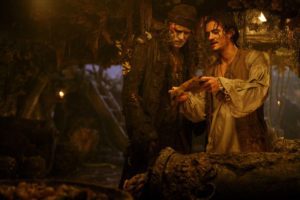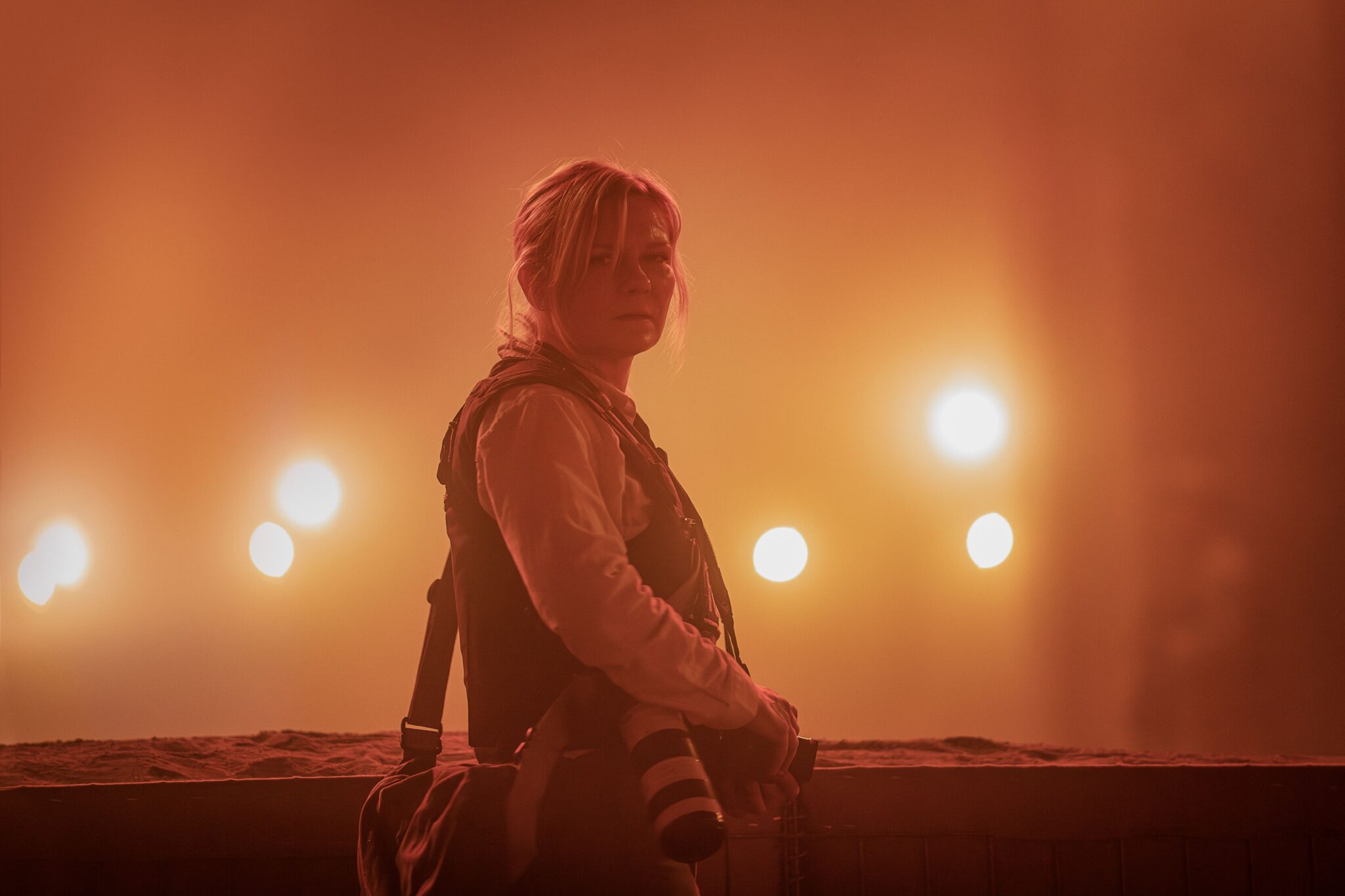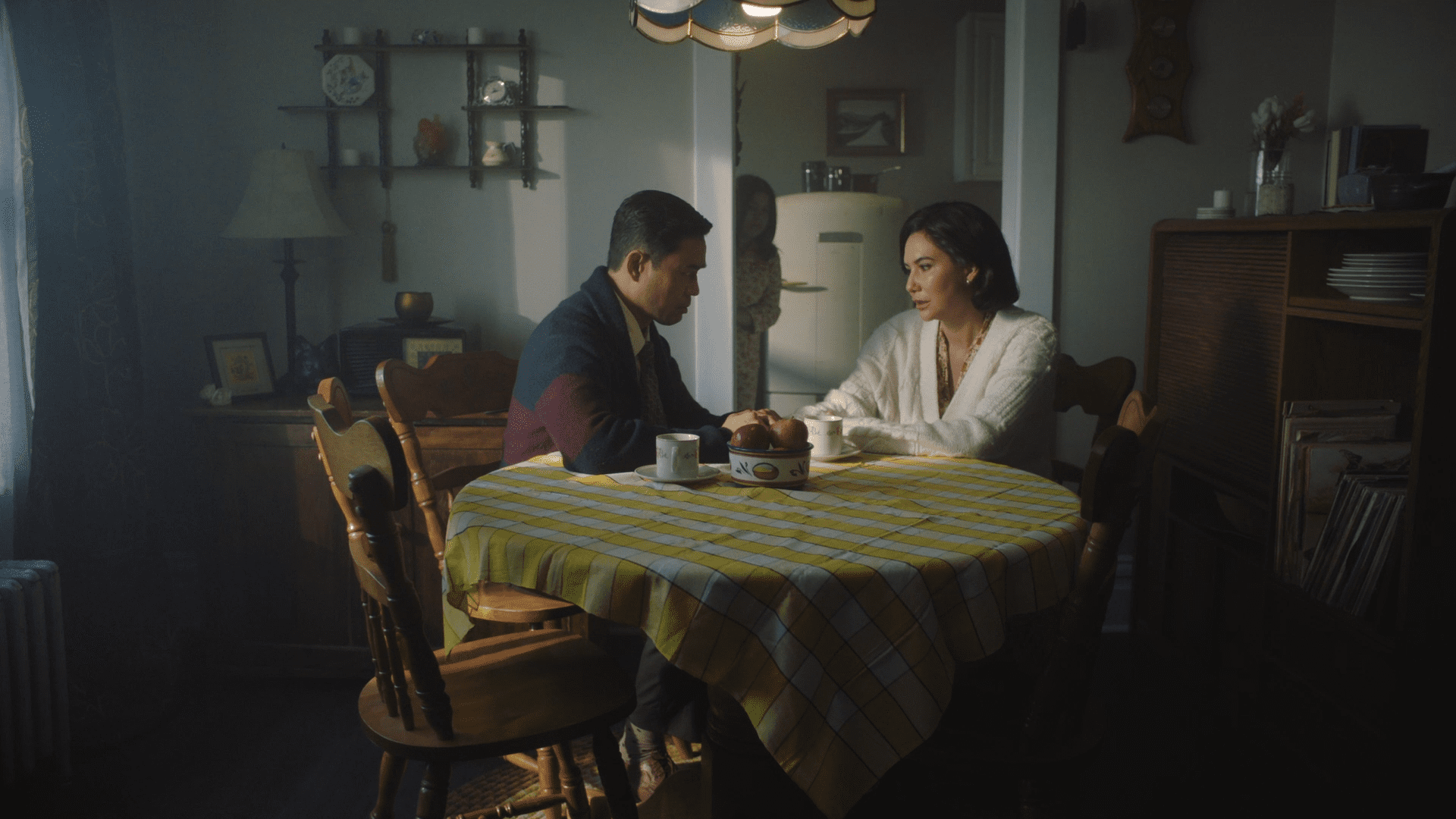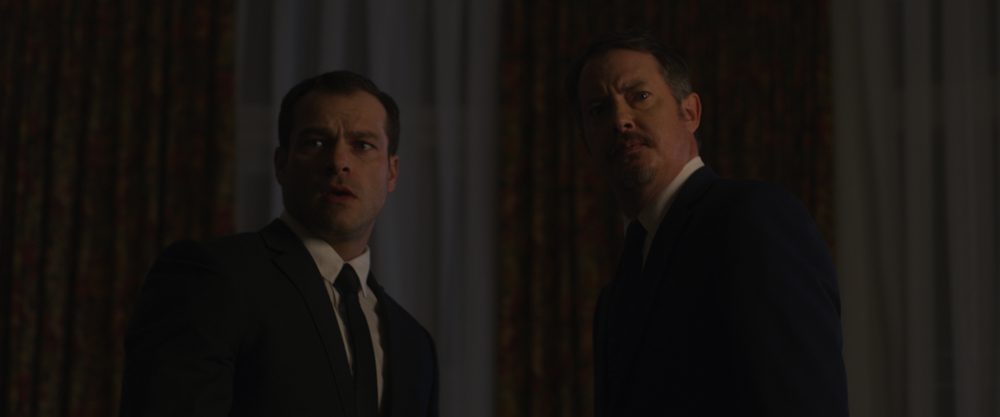Jack Sparrow is taken, body and soul, to a place not of death, but punishment. The worst fate a person can bring upon himself. Stretching on forever. That?s what awaits at Davy Jones? locker.
Theologians have long debated the existence and nature of Hell. Tia Darma’s words (meant to explain why she could bring back Barbossa but not Jack) are a pretty accurate description of the traditional view of the place of torment. Disney’s Locker, however, it not a place where Jack is being “tormented in the flames,” (Luke 16:24), but somewhere where Jack’s own psyche is constantly tormenting him. In the original 2008 Limited Edition bonus feature “The Tale of Many Jacks,” the creators explain how each of the many Jacks are elements of his personality. The only things in Davy’s Locker causing his anguish?are?what he has brought there himself.
People sometimes joke about wanting to go to Hell because there they would be able to party with all their friends forever. But, if there is a Hell, and it is anything like Davy’s Locker, it is a place where you finally have to face yourself. Perhaps the hardest thing for anyone is being alone. In our society, even when no one else is around we have the television and other electronic media to keep us company. Meditation in seclusion has become a lost art. Nor were we meant to be alone forever.
When we were first introduced to Jack Sparrow, he was alone in a small fishing vessel. But composer Hans Zimmer chose to introduce him with a majestic melody, which would be expanded and modified in various ways through the films. Often referred to as the theme for Pirates of the Caribbean, it is, more accurately, Jack’s theme, always associated with him. Below is a YouTube clip to remind us how Jack is introduced to us in the series. [“The Medallion Calls” is the name for the entire scene in The Curse of the Black Pearl.]
The same theme is repeated near the beginning of Dead Man’s Chest. Even though Jack is only “piloting” a coffin.
I couldn’t find a clip of this, but at the end of Dead Man’s Chest, the theme is modified into a dirge as the group sails upriver to Tia Darma’s shack. We see candles lit for Jacks’ funeral. The theme is used for the first time (unless I somehow missed it) in?At World’s End?for the scene in Davy’s Locker where The Black Pearl “sails” across the sand.
I have always thought it fascinating?the heart of this musical theme sounds eerily like an obscure hymn I used to sing when I attended Moody Church in Chicago in the late 1970s. I was attending Moody Bible Institute at the time, training for the ministry. I seriously doubt Hans Zimmer ever heard ? or heard of ? the mid-twentieth-century evangelical melody written by John W. Peterson. But I cannot hear the theme in the movies without these words running through my head:
All glory to Jesus begotten of God
The great I Am is He
Creator sustainer but wonder of all
The Lamb of CalvaryTo think that the guardian of planets in space
The Shepherd of the stars
Is tenderly leading the church of His love
By hands with crimson scars
During the worship services I attended, “All Glory to Jesus” was directed in a much quicker rhythm and in a more majestic style than the recording below. (For a short clip in a?style a bit more like the Pirates theme,?check out MyMidi.audio.)
I bring up this strange coincidence to point out the parallel between the man for whom Zimmer wrote a theme, and the Man for whom Peterson wrote that musical accolade. Both came back from the dead. Fantasy tales often have people coming back from the dead. In The Lord of the Rings, Gandalf is sent back from the dead to complete his mission. Jack is rescued from Davy’s Locker because he is needed for the last “piece of eight” so Tia Darma?can be released from her “single form.” As dangerous as it my seem, Tia must again become Calypso to rescue the pirates from their certain doom. The Brethren Court must be convened.
The call has gone out to the rest of the Pirate Lords through means of a song. “Hoist the Colors” is a defiant pirate anthem on the order of the “Star Spangled Banner.” It tells the story of Davy Jones and Calypso, and how the First Brethren Court bound her. Calypso is the “queen in bed” the young boy at the beginning of the movie sings about. ?”The King” is the Pirate King of the First Court. The song continues until the large group of pirates and pirate collaborators on their way to the gallows join in. This is what East India Trading Company Chairman Lord Beckett wants. He wants them to convene so he can destroy them in one fell swoop.
The King and his men
stole the Queen from her bed
and bound her in her bones
the seas be ours and by the powers
where we will we’ll roamYo ho, all hands
Hoist the colors high
Heave ho, thieves and beggars
Never shall we die
 As Elizabeth Swan paddles her small boat into the pirate stronghold in Singapore, she takes up the song at a later point, which refers to the summons this song is meant to be.
As Elizabeth Swan paddles her small boat into the pirate stronghold in Singapore, she takes up the song at a later point, which refers to the summons this song is meant to be.The bell has been raised
from its watery grave
Hear its sepulchral tone?
A call to all
pay heed the squall
and turn yourself toward homeYo ho, haul together
Hoist the colors high
Heave ho, thieves…
 to thievery. Pirates who are honest with themselves, though, realize they have also have chosen to be what they are. In Dead Man’s Chest, Bootstrap Bill admits this, first to Jack, and later to Will.
to thievery. Pirates who are honest with themselves, though, realize they have also have chosen to be what they are. In Dead Man’s Chest, Bootstrap Bill admits this, first to Jack, and later to Will.Bootstrap: …It was always in my blood to die at sea.
Will: It?s not a fate you had to choose for yourself either.
Bootstrap: I? I could say I did what I had to when I left you to go pirating. But it would taste a lie to say it wasn?t what I wanted.
We are sinners both by nature and by choice. Circumstances in life certainly influence our actions but, ultimately, the choices we make are ours alone. The Court of the Brethren is?able to help give pirates a measure of freedom, but true freedom only comes through a changed life. That’s why Christ’s resurrection is different. His mission was not just to defeat the enemy, but to make us into a New Creation.
 There is a wonderful scene after Will becomes captain where the Flying Dutchman surfaces after being drawn into the maelstrom. It is a sort of baptism for Will and his crew, who return with their humanity restored?no longer “fish” creatures or part of the ship. The new Captain has given them new life. The parallel to the Christian experience is obvious.
There is a wonderful scene after Will becomes captain where the Flying Dutchman surfaces after being drawn into the maelstrom. It is a sort of baptism for Will and his crew, who return with their humanity restored?no longer “fish” creatures or part of the ship. The new Captain has given them new life. The parallel to the Christian experience is obvious. Henry Turner, who is reportedly to return in Dead Men Tell No Tales. Will Pirates 5 breathe “new life” into the Pirates of the Caribbean franchise? In less than two weeks, we shall see. In the meantime, I plan to examine On Stranger Tides next week. Was Pirates 4 just a “tack on”? Or is there something more in it?
Henry Turner, who is reportedly to return in Dead Men Tell No Tales. Will Pirates 5 breathe “new life” into the Pirates of the Caribbean franchise? In less than two weeks, we shall see. In the meantime, I plan to examine On Stranger Tides next week. Was Pirates 4 just a “tack on”? Or is there something more in it?





